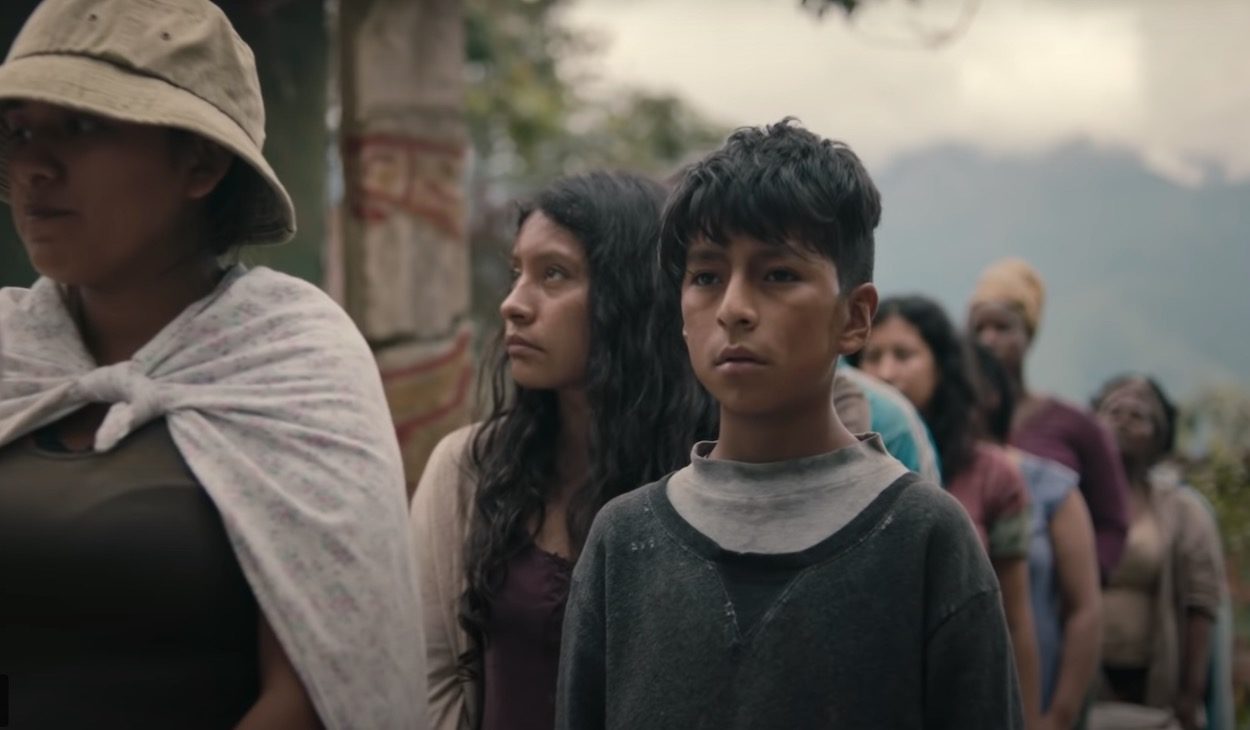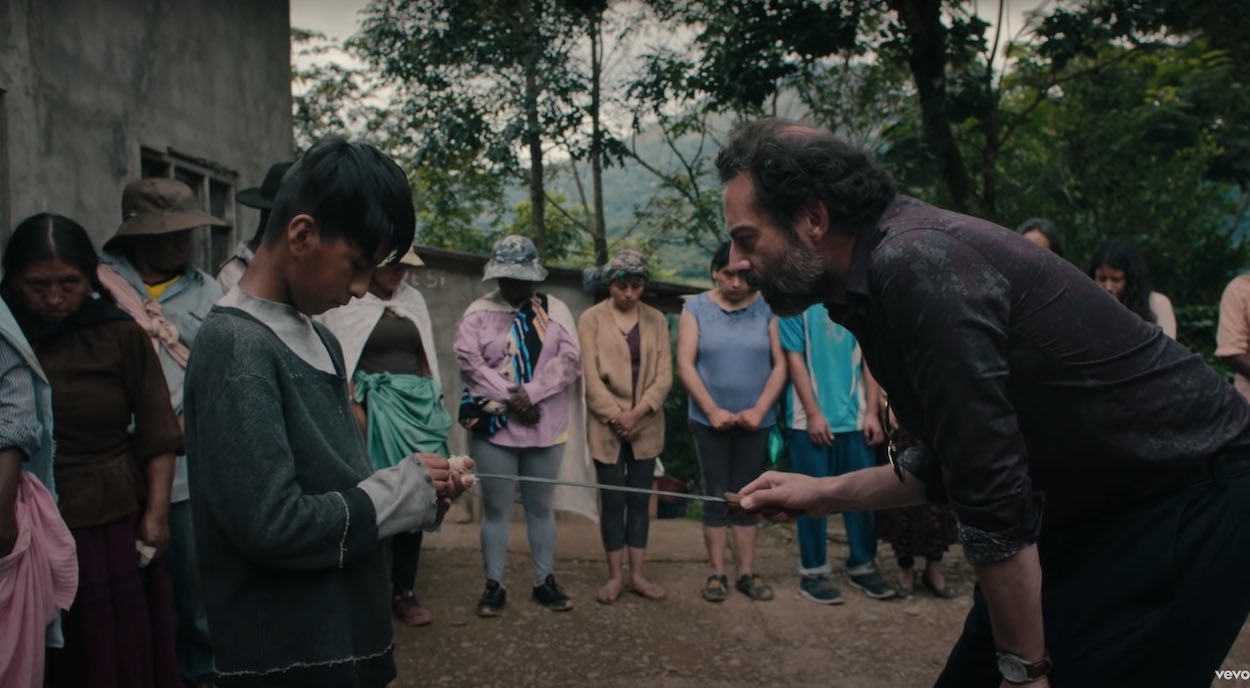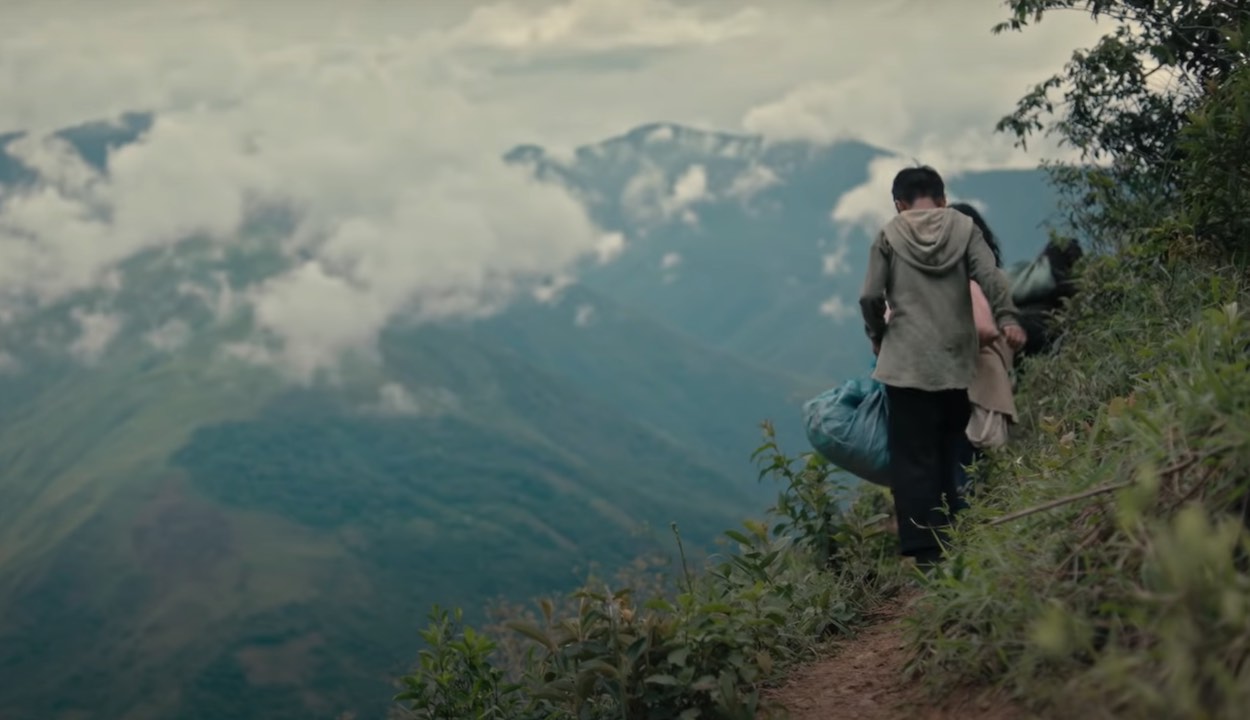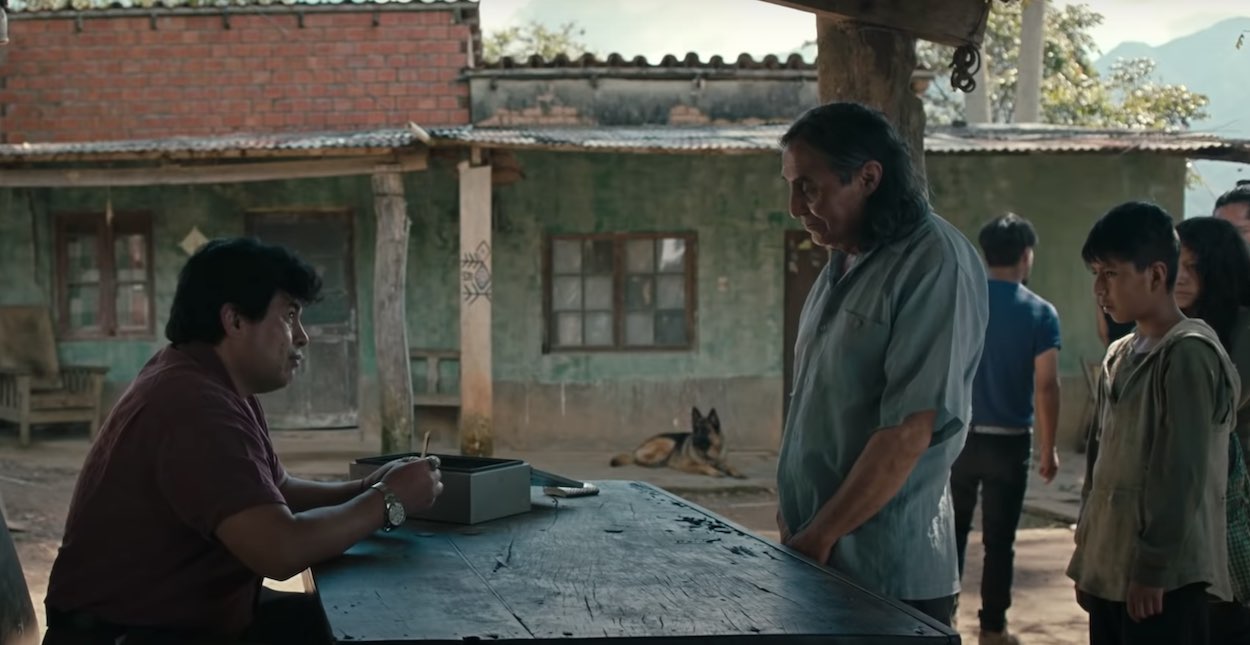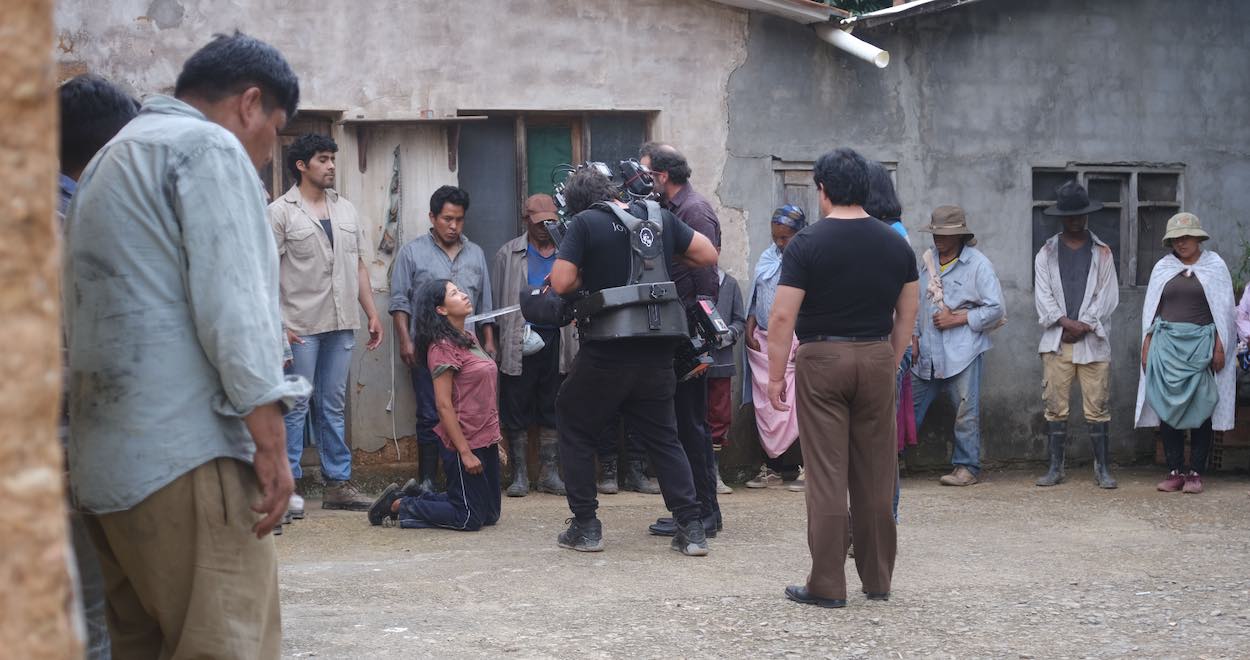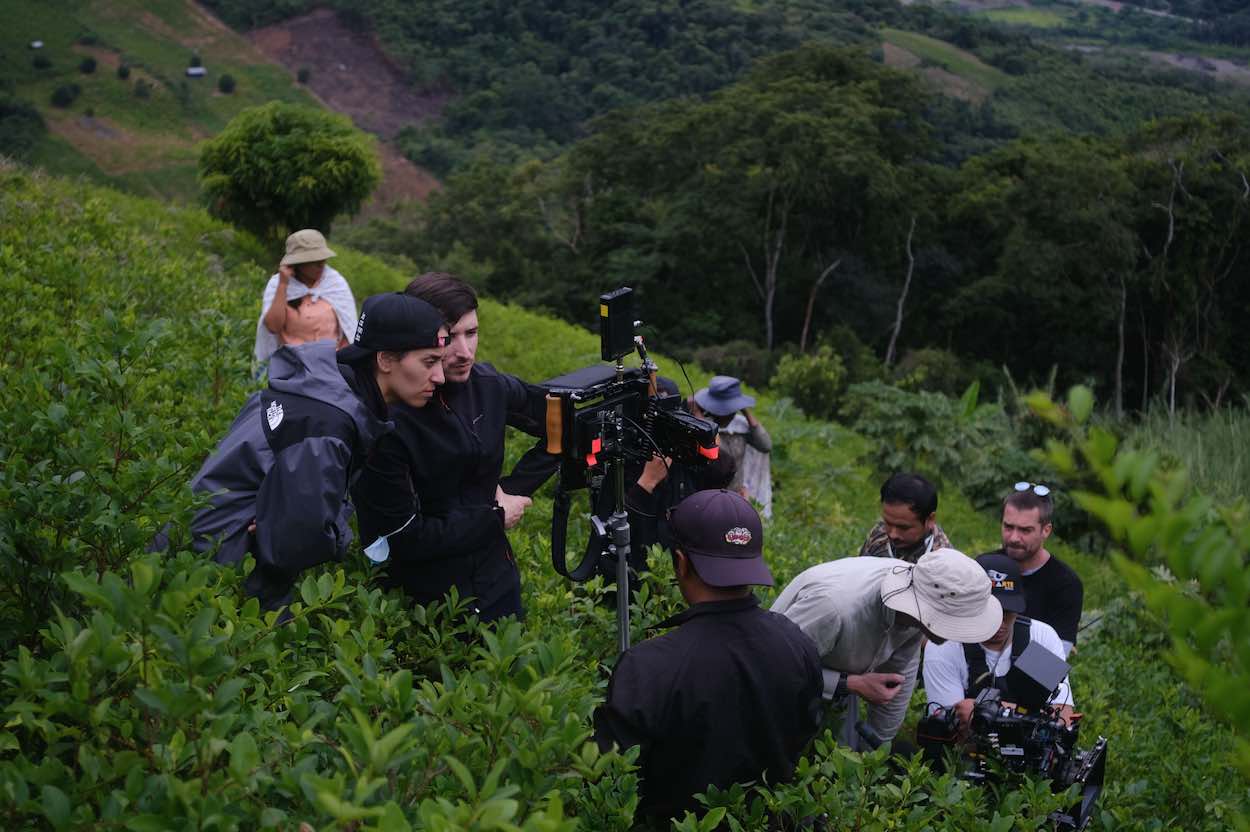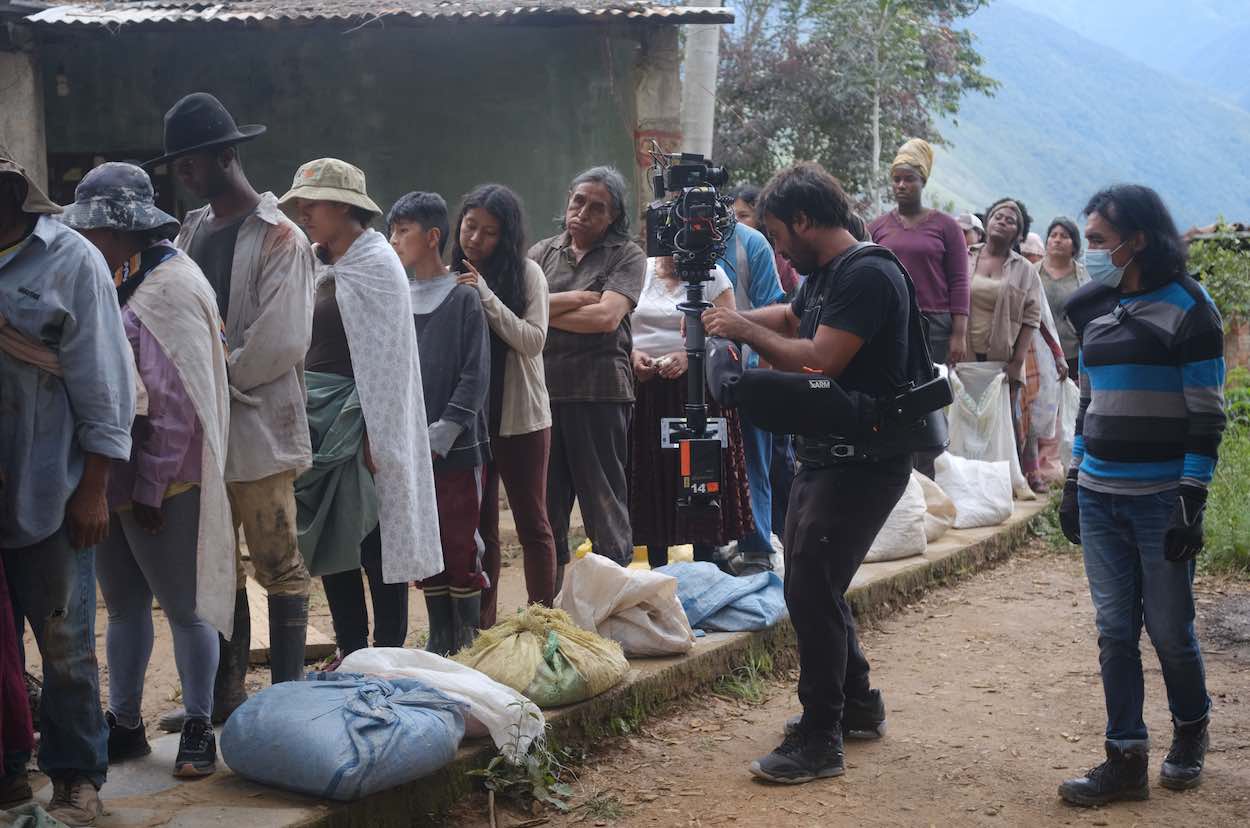Sweeping locations in The Eyes
This is the first album that you have released under your own name. Why did you decide to do that?
Well, because there were subjects that I wanted to touch on in my music and the only way to do it was to express myself. Also, I have been producing for other artists for eight years, I did numerous songs, and at this point I really wanted to make my own music. You know, when you produce for others you are always thinking about what’s right for them, what’s right for their universe, and so basically you create within certain constraints. And I wanted to do something more instinctive that just comes out of me.
So, the music was the first issue, but it’s quite a big step to then make your own films to go with the album.
That’s something very important to me too, because sometimes I feel like the video is just a support of the music. But here I wanted to make like a work of art, where music and video both express the work. It’s not just a support. It’s really something conveying the very meaning and message of the work.
From Kill You
What would you say that this message is?
Basically, the album was built around the human condition. There’s different dimensions of our existence that I touch on in every song of the album and we had to pick three different songs and out of [them] make this trilogy and this short film. In Broken Blue [part 3], you have the grief and this very aspect of life that we have to expect: that life starts and ends. In Kill You [part 2], it’s time… It’s how time reigns over our lives in a cruel and somewhat cold manner. And the first one, The Eyes, is something else, but it also touches the human condition with the dimension of finiteness and the fact that we are conscious beings.
The story that you tell is perhaps so strong because the characters have no power at all compared to those who are employing them and exploiting them.
Definitely, yeah. That’s also a good metaphor of the human condition, so in a lot of ways we are powerless. We have to accept and deal with things no matter what happens. Of course, I mean there are certain aspects of our lives [where] we have power, but I feel like for the most part it’s not the case.
From The Eyes
The films are set and were shot in Bolivia. What was behind that decision and how did it go?
I think there were two main reasons for that. First, I wanted to shoot in an environment with agricultural life. Of course, you have that in France too, but I didn’t want modern society to be in the films. I wanted something that was more timeless. And I felt like the agricultural life in Bolivia is closer to the original agricultural way of life. There’s something about it that really reminds us where we come from as a species. And then, Bolivia is a really beautiful country and I fell in love with what I saw when I started receiving the first scoutings.
Also, I wrote the scenario with the culture of coca and it’s the only country where coca growing is legal; everywhere else it’s illegal. In Bolivia, because they use coca for medicine it’s something that’s really a big part of their culture and it’s not used for the illegal traffic of cocaine. So that’s why we did it in Bolivia.
Behind the scene stills in Bolivia
You shot the whole trilogy in three days. That must have been pretty demanding.
Yeah, it was. We had like two weeks on set, but when it came to really shooting we only had three days for the whole short film. We could not afford a fourth day of shooting, so we had to find a way to make it fit with what we had.
When people are listening to your music but also watching this trilogy, do you imagine they will watch the three films all at once and in order, or are you thinking that they can stand alone?
That’s a good question. Obviously if you watch it all in one go and in order, I feel like it’s more interesting because you understand the characters, the story and everything makes sense. But I also wrote it so that you can watch them on their own. I really wanted that you can watch just one video and still get a feeling, an emotion and a little story.
It’s an ambitious project to turn from being a musician to shooting your own films. How difficult has it been?
To be honest, I thought it would be more difficult. Maybe it’s because I really enjoyed it and I have loved cinema for as long as I can remember. I love to create, I love to have all those choices and find the right way to express what you want to convey. Of course, the most difficult thing is to be responsible for a budget and making sure that everyone is paid right, that everything is on time, because the hardest part of cinema is that you spend first and you don’t know what you’re going to get. You don’t see the image. I mean, you see what you shoot, but you don’t have the final cut of what you’re going to show to people, and you don’t really know how it’s going to look. I think that’s the most stressful part.
Of course, it’s always a challenge making the pictures in your head come to life on film.
You’re right, because when you create there’s always the question in your mind: is it the best way to express it? Because you could do it in so many ways: with a different tone, with different characters, with a different story. So sometimes you have that voice in your head. Maybe I can do it better, maybe there’s a better way to express it, maybe there’s something more original, something more beautiful, more spectacular. So you have to find a balance between every part of that. But for some reason we were pretty confident that it was the right tone and that we had good characters, good actors, everyone working on it being very talented, so that made it easier.
Are you planning to make more films, perhaps a feature film in the end?
That’s what I want. I’m working now on the fourth video out of the album.
Will it go on from the trilogy?
No. I feel like the trilogy really has an identity, so I don’t want to touch it I feel like it’s perfect the way it is.
What music videos have particularly stayed in your mind?
There are so many, but I can mention Flying Lotus – Never Catch Me (2014), DJ Mehdi – Signatune (2011); Stardust – Music Sounds Better With You (2019); Gesaffelstein – Pursuit (2013); and The Blaze – Territory (2017).
INFO:
@sandorwaiss
@bigprodparis
